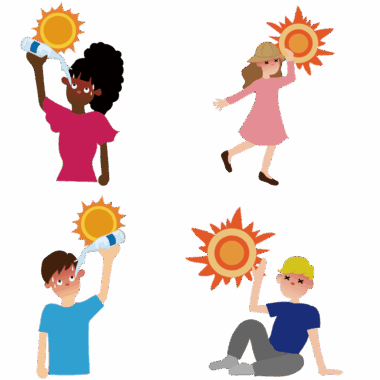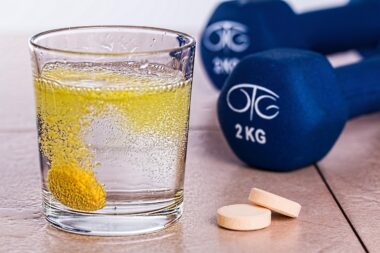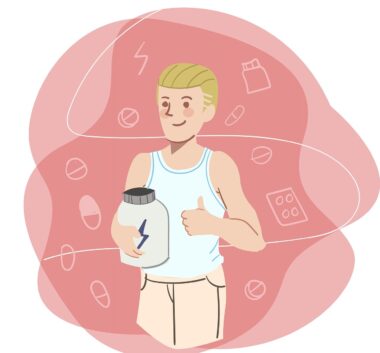How to Choose the Right Sports Drinks for Seniors
When it comes to choosing the right sports drinks for seniors, it is essential to consider hydration needs, ingredients, and specific health conditions. Seniors often face unique challenges, such as dehydration or electrolyte imbalance, particularly when engaging in exercise. A well-formulated sports drink can help restore these vital nutrients. Look for drinks that contain a balance of electrolytes such as sodium, potassium, and magnesium, as these are crucial for maintaining proper muscle function. Additionally, consider the sugar content of the drink, as older adults may be more susceptible to blood sugar spikes. Low-sugar or sugar-free options are often preferable. It is also beneficial to choose gluten-free beverages, as some seniors might have intolerances. Furthermore, always check for added vitamins or minerals, which can provide additional health benefits. Ultimately, senior athletes should strive to find products that not only quench their thirst but also promote recovery after workouts. Labels can sometimes be confusing, so don’t hesitate to consult a healthcare provider or nutritionist for personalized recommendations tailored to specific individual needs.
Understanding the importance of timing is crucial when consuming sports drinks, especially for seniors. Consuming a sports drink before, during, and after physical activities can enhance performance and recovery. For pre-exercise hydration, aim to consume the drink approximately 30 minutes ahead of the workout to maximize its effectiveness. During exercise, sipping on the beverage can help maintain hydration levels, particularly in hot weather or prolonged sessions. After workout completion, the right sports drink can aid recovery by replenishing lost electrolytes and fluids, which is particularly important for seniors who may take longer to recover from exertion. Research indicates that the body’s hydration needs increase with age, making it even more crucial for seniors to hydrate adequately. Recommendations for specific types of drinks often suggest low-calorie electrolyte solutions that are less likely to contribute to unwanted weight gain. While many seniors focus on hydration strictly, they should not ignore flavor and palatability, as the enjoyment of the drink can encourage regular consumption. Remember to evaluate individual needs based on health conditions, medications, and overall activity levels.
Ingredients to Look For
When selecting sports drinks for seniors, closely examine the ingredients. Opting for drinks with natural sources of sugar, such as coconut water or fruit extracts, can be a healthier choice. Ingredients such as artificial colors and flavors should be avoided, as many seniors prefer more straightforward and natural ingredients. Furthermore, consider drinks that include branched-chain amino acids (BCAAs), which can support muscle recovery and reduce fatigue. Vitamins like B12 and D are also beneficial, especially since older adults often face deficiencies in these areas. Most importantly, evaluate the electrolyte profile of the drink; drinks that include a blend of sodium, chloride, and potassium can help maintain proper hydration. Magnesium content in sports drinks is also worthwhile due to its role in muscle function and recovery. Look for additional functional ingredients like probiotics that support digestive health or anti-inflammatory compounds that can help mitigate exercise-related soreness. Always keep an eye on caffeine content in drinks, as stimulants are generally not recommended for seniors and can lead to dehydration or increased heart rates.
The texture and taste of sports drinks can greatly influence their desirability among seniors. Many older adults often prefer lighter and less syrupy textures, making it easier for them to consume adequate amounts. Companies have started catering to this preference, developing a range of beverages that appeal to taste buds without compromising on health. Considering flavors, seniors may gravitate toward milder options reflecting their taste preferences, like lemon or berry, rather than artificial and overwhelming flavors. Keep in mind that hydration doesn’t solely rely on beverages. Incorporating hydrating foods like fruits and vegetables into the diet is equally important; this decreases the dependency on sports drinks alone. Exploring homemade alternatives can also be beneficial; mixing water with fresh fruit or a pinch of sea salt creates a refreshing beverage without additives. Always evaluate personal taste and restrictions when choosing sports drinks, because enjoyment can lead to consistent hydration habits. Making hydration enjoyable is essential, sometimes acting as a motivational factor to engage in more physical activities or sports.
Consulting with Professionals
Before making changes to hydration routines or trying new sports drinks, consulting with healthcare professionals is always advisable. Specialists can provide insights that highlight individual differences, particularly for seniors with pre-existing conditions or medications that impact fluid or electrolyte balance. Nutritionists or dietitians can analyze dietary habits to recommend the best options for hydration while considering possible restrictions. Engaging in personalized planning can emphasize vitamin and mineral replenishment and overall well-being. Many seniors may not realize the specific needs of their bodies, especially during exercise; tailored advice ensures they select drinks that support both their performance and recovery effectively. Also, understanding hydration’s role in medication effectiveness is crucial. Certain medications may impact fluid retention, necessitating a keen awareness of hydration needs. This professional guidance helps prevent potential pitfalls, such as dehydration or electrolyte imbalances. Whether participating in light exercise or more intense workouts, ensuring the right hydration strategy is essential for maintaining optimal health.
In addition to choosing appropriate sports drinks, overall hydration strategies play a significant role in enhancing athletic performance and health. Seniors should establish daily water intake goals and combine them with strategic sports drink consumption. Staying hydrated at all times is key, so drinking water alongside sports drinks helps maintain a balanced approach. Tracking hydration status can be beneficial, and seniors can use both physical signs—like dry mouth or dark urine—and technological tools, such as hydration apps, that remind them to hydrate effectively. Further, adapting to environmental conditions is critical, especially in hot weather or high altitudes where the body loses fluids faster. Carrying a water bottle or sports drink during outings encourages regular sips, making hydration a priority instead of an afterthought. Moreover, participating in group classes or activities can foster social engagement, where shared hydration practices create a supportive environment. Regular reminders about the importance of hydration should be part of a holistic approach to senior health; staying adequately hydrated enhances overall well-being and quality of life.
Final Thoughts on Hydration
Ultimately, understanding the specific needs of seniors when choosing sports drinks requires careful consideration of safety, hydration strategies, and individual preferences. Dehydration poses considerable risks, particularly for older adults, so educating them about hydration and its significant role in exercise is essential. Experimenting with different products can help seniors discover beverages that satisfy not only their thirst but also align with their nutritional needs. Encouragement to focus on a balanced diet rich in vitamins and minerals is equally vital to support their active lifestyle. Finally, creating an environment where hydration is prioritized can have far-reaching benefits on performance and overall health. Developing a routine that integrates smart beverage choices with ample water intake fosters a supportive hydration strategy. Conversations with professionals further round out an informed approach to exercise nutrition. During this journey, remain open to adjustments as preferences and needs evolve. By focusing collectively on hydration wellness, seniors can continue to engage actively in their fitness pursuits. Adopting a proactive stance regarding sports drinks can ultimately transform health outcomes while allowing them to enjoy physical activities well into their golden years.
Choosing appropriate sports drinks represents a step forward for seniors looking to improve their hydration levels while maintaining an active lifestyle. By evaluating ingredients, considering hydration timing, and partnering with medical professionals, they are equipping themselves for success. With the right beverage choices, seniors can stay hydrated, healthy, and engaged in their fitness routines, enhancing their overall quality of life.








